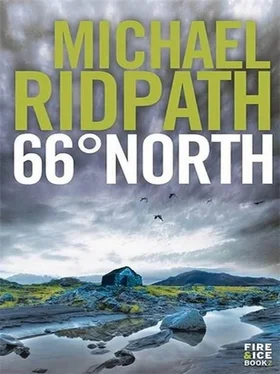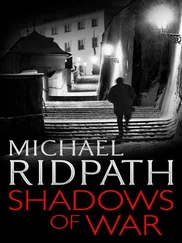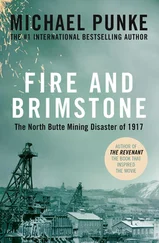Magnus didn’t answer.
‘Isn’t there? Answer me, Magnús.’
‘No.’
‘Answer me.’
‘Ingileif?’
‘Yes?’
‘Shut the fuck up.’
A hundred and seventy kilometres is a long way to drive in silence, even if you are going thirty kilometres an hour over the speed limit.
He turned his motorbike off the little road, on to an even smaller road, not much more than a track with a strip of tarmac at its centre, and stopped to examine his Michelin map. He couldn’t believe how many trees there were in this country, specifically how many apple trees. They were unknown in Iceland. He would have plucked a fruit from the small orchard adjacent to the road, but that would mean taking off his helmet to eat it, and he didn’t want to do that.
He knew exactly where he was. He had spent a couple of hours examining the map at home and checking it against Google Earth, until this small strip of Normandy was etched on his brain. Sure enough, beyond the orchard the road curved to the left. On one side were small fields of pasture, on the other, woodland.
He kicked the motorbike into life and drove it slowly and quietly along the lane. He couldn’t see anyone. That was good. The bike had Dutch number plates, which made him feel conspicuous here in France. They should have thought of that, but as long as no one saw him, it wouldn’t matter.
He counted the telegraph poles running along the side of the road. At the seventh, he stopped and pushed the bike into the woods opposite. He spent a couple of minutes making sure that it was concealed from the road, yet ready for a quick getaway.
He made his way through the trees about twenty metres until he reached the other side. A group of cows were chewing their cud in a small field, their tails swishing away the flies. Beyond the field was the barn.
He moved through the edge of the wood just a few metres in from the field, until he found the tree he was looking for. It had been carved with a ‘B’ a metre above the ground. ‘B’ for Bjartur, although only he would know that; the French police would have no clue what it stood for when they discovered it. The patch of freshly dug ground was five metres to the west of the tree, partially hidden under a broken branch.
He slid the pack off his back, took out a trowel, and started to dig. The earth came away easily, and within a few minutes he had revealed a polythene bag containing rifle and ammunition.
A Remington 700. He grinned. He eased the rifle out of its bag and checked the mechanism. Everything worked perfectly.
Then he pulled out his binoculars and examined the barn. It was large and had been converted into a holiday home. Behind it was the farmhouse to which the barn must once have been attached. It was a sunny afternoon, and so there were no lights on in the building, but a door out to the garden was open. And in the garden were two chairs, a book resting open on the seat of one of them. There was a car parked on the patch of gravel in the front – only one car, which implied there were no bodyguards. Excellent. The car was an Audi estate: he could just make out the number plate – British, not French.
It was hard to estimate range with any precision, but he guessed a hundred and twenty-five metres was about right. The chair seemed to be about the same distance away from him as the petrol container had been back in the mountain valley the previous morning.
He found a good spot to lie, with the barrel resting on a log, and waited. It was a sunny day, the French September sun was much stronger than its Icelandic counterpart, and he felt uncomfortably warm in his motorcycle leathers. He would wait until nightfall if he had to, although having spotted the open book on the chair he was optimistic that that would be unnecessary.
He ran through the getaway in his mind. He would be sure to drive the bike at a steady speed so as not to attract attention. It was fifteen kilometres to the isolated water-filled quarry where he would chuck the polythene bag containing rifle, trowel, binoculars and bullet casings, and then twenty more kilometres before he hit the autoroute and the long ride back to Amsterdam.
Through the binoculars he could see movement in the house. He tensed. The target emerged.
He put down the binoculars and rested the rifle on his shoulder. The target was wearing a narrow-checked shirt and carrying a mug. Tea, no doubt – so English. The target walked across to the chair and bent to place the mug by its side. Stood up. Surveyed the landscape.
He pressed the trigger. Several things happened at once. The window behind the target exploded. The noise of the rifle shattered the rural quiet. Rooks further along the copse took to the air, yelling angrily.
The target turned towards the window and then back towards the wood, jaw open, reactions dulled by the surprise.
He had missed. Keep calm. He fired again. This time the target took a step back and raised a hand to his upper arm. A short, sharp cry of pain. One more shot. The target crumpled to the ground, just as a woman ran out of the door screaming.
Time to go.
FRIKKI SAT IN the back of the church as the priest droned on. Magda had forced him to come with her to the large concrete Catholic cathedral on the hill on the other side of the centre of town from the Hallgrímskirkja. She was sitting next to him now, struggling to make sense of the sermon the priest was giving. Frikki had given up after the first sentence.
She had wanted him to pray for forgiveness. He wasn’t sure how to do that. He closed his eyes. ‘Forgive me, God,’ he muttered to himself. Was that enough? He wasn’t sure. ‘Forgive me, God,’ he repeated. Why should God forgive him, a loser without a job, who stole, who never went to church? Who had killed someone.
The only good thing about Frikki’s life was Magda. If God had any sense he wouldn’t bother saving Frikki, he would save Magda from Frikki.
Frikki closed his eyes again. ‘Please, God, don’t take Magda away from me.’
Frikki thought he would be bored, but he wasn’t. It was a peaceful building with its smooth blue columns. Although he didn’t feel a part of the congregation of earnest worshippers, most of whom were foreign, they did give the place a sense of calm. No one stared at him, although Frikki was sure everyone must know he was the only Protestant in a Catholic church.
He could sort of see why Magda liked coming to places like this every week. He could understand why religion made sense for her. But not for him.
He didn’t really believe in God. And he was quite sure that if there was a God, He didn’t believe in Frikki.
Had he killed the banker? He had no way of knowing whether the man was already dead before Frikki had kicked him. Sometimes, in his better moods, Frikki was convinced he was. At other times, like now, Frikki was pretty sure he wasn’t.
The worst thing was, for those few moments back in January, Frikki had actually wanted to kill him.
Those few seconds would stay with him for the rest of his life. He would always be a murderer, even when he was an old man. And now Magda knew.
But not only did she know, she understood. She said that she would forgive him, and that God would forgive him.
They were all standing up and walking up to the priest to kneel down and take the bread and the wine. The choir sang. Magda bobbed down on one knee, made the sign of the cross, and followed them. There was no way Frikki was going to do that.
Suddenly it came to him. For Magda truly to forgive Frikki, she had to believe God had forgiven him.
He knelt down to pray.
When he got back to Reykjavík, Magnus dropped Ingileif off at her apartment, and drove back to his own place in Njálsgata. He poured himself a beer and flopped into his armchair.
Читать дальше












